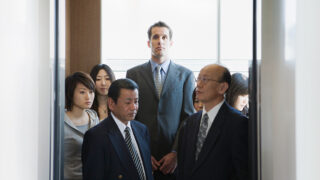Using Japanese Values to Thrive in Global Business
Japanese companies have unique cultural, communication, and operational challenges. But they also have values that have led to remarkable longevity. Check out this seminar to hear how these values help earn trust from overseas head offices and develop employees.
Omotenashi is a uniquely Japanese word. Omote means “public face,” and nashi means nothing. When combined, the phrase represents the wholehearted sincere service and attention to detail that has made Japanese hospitality the global phenomenon it is today.
But it was Christel Takigawa who gave the word “omotenashi” meaning to folks across the world with her iconic speech that helped Tokyo win the Tokyo 2020 Olympics bid back in 2013.
Since then, Japan has become a model soft power. From anime to the Japanese tea ceremony, the country’s culture continues to spread in diverse ways that few other nations have managed to replicate. Is the modern Japanese style attracting a younger, more global audience? Or is an undercurrent of traditional Japanese culture and values at the center of all this attention?
Using Japanese Values to Thrive in Global Business
Japanese companies have unique cultural, communication, and operational challenges. But they also have values that have led to remarkable longevity. Check out this seminar to hear how these values help earn trust from overseas head offices and develop employees.
At the 8th annual G1 Global Conference in 2018, leaders in entertainment, sports, media, and business came together to discuss the phenomenon of Japanese omotenashi and what it means for the future of the nation’s hospitality industry.
Is “Cool Japan” enough to keep the world interested?
Oka: Emotion and narrative are something that people gravitate towards, and if you have an emotional investment in something, they will stick with it. I think with anything—like new technology—people will come to see it and give it a chance for its novelty, but whether they stay in it is whether they have an emotional investment in it. And I think that’s part of what art is. And for me, coming from an art background, people around the world are really interested in Japanese content in particular.
We say “Cool Japan” and we kind of throw these things out there. First of all, saying something is cool already is just not cool. But what we think is cool is not necessarily what the world thinks is cool, or what people in America want to see. So it’s about supply and demand, and with content in particular. A lot of the anime, Japanese food, the cuisine…I think that’s where a lot of people will have an emotional investment.
If you go see the anime expos in the US and in France and stuff, people are so invested in it, and that’s their attachment. And those are the people who care about Japan, who really want to learn about Japan, and who fall in love with these characters. So what I love to see is more openness to and pushing that, and also working with artists abroad and trying to have more collaboration. I think that is a great way for Japan to get out more.
We’re maybe we’re not as good at pushing ourselves, but there are so many fans around the world, maybe not in numbers, but in quality. If we get some of those great artists, people who love Japan and work with them more and, and have them be the envoys, you know, that might be great. They can become our great bridge in terms of getting our message abroad and keeping it emotional through art.
Next Article
Japanese Values for Better Business in the Modern Age
Omotenashi: The Japanese Hospitality Industry’s Secret
The Ultimate Guide to Working in Japan
How can Japan continue to impress in the modern world?
Rowbury: That’s a very interesting approach. But how can the Olympics be used as a platform? I think the last Olympics in 1964 was relatively simple. There was a very clear message. Now, we don’t yet seem to have a very clear message of what we’re going to showcase. We hear about driverless cars, and we hear about robots and things like that, but how can Japan effectively use the Olympics as a platform for getting its message across?
Newman: Uh, one of the things that happened in the last Olympics in Tokyo was that you launched the bullet train. There was something amazing and new that the world hadn’t seen before. I don’t think that’s going to happen this time. I don’t think it’s that simple. We’re not in that era.
For me, it’s about the human interface. And if I tell you my biggest hope, it’s also my biggest concern and worry about the human interface during those weeks when the Olympic and Paralympic, let’s not forget, games happen in Tokyo. Any idea that government spokesmen or official ambassadors or heads of corporations are the face of Japan goes out of the window. The face of Japan beamed into every living room around the world will be young athletes. At the moment, the media department of the Tokyo Organizing Committee for the Olympic Games has got a tiny handful of athletes who it will confidently put forward as communicators with international media. A tiny handful with a mixture of language skills, media skills, confidence, a whole set of things.
Unless that changes, the face of Japan during the Olympic year, during that important year, during those vital weeks, when Japan beams into every living room in the world will be, I can guarantee safe, middle-aged bureaucrats.
So there’s a huge job of upskilling to be done if Japan really wants to use this moment of opportunity because it’s the human face that really matters.
Next Article
Unlock the Mysteries of Japanese Work Culture
TESSEI: The Art of the Seven-Minute Miracle
How will tourism affect daily life in rural Japan?
Rowbury: Stefan, coming back to your point in connection with the idea that immigration and tourism are changing things. I’m thinking a year before the Olympics at the Rugby World Cup, there are several stadiums in rural areas. Kashi, a famous steel town up in the north, for instance. And I’m thinking of the construct where suddenly a thousand very large rugby fans show up in Kashi and want to go out for a couple of drinks after the match, and they descend upon the bars of Kashi—what’s going to happen?
I think that’s a great business opportunity. But as we head into this era of tourism, the infrastructure is in place, is the mindset infrastructure in place to be able to cope with this in the sense that it may backfire if we have suddenly all the bars saying no English, no foreigners allowed. That presents a very negative image. So is the mindset infrastructure in place, do you think?
Wagstyl: We won’t know for sure until it happens. And the chances are it’s going to happen somewhere, whether that infrastructure and mindset are not in place. In my own view, it’s certainly much better than it was. It is improving in the right direction.
It would be good if the authorities in some of the other cities show the engagement that the authorities here in Tokyo are in terms of the Olympics. You mentioned taxi drivers learning English. The policemen are also remarkably assiduous in practicing English, which is quite fun. But not as far as I can see outside.
So, one thing I would do now instead is to take a bit of time to engage those local authorities more. Whether it will be enough, I think we’ll see. I’ve never been to Kashi, and I’m sure it’s a lovely place, but there are so many places in Japan where the bars close at nine o’clock, that those gaijin may have a real problem getting any drink at all.







